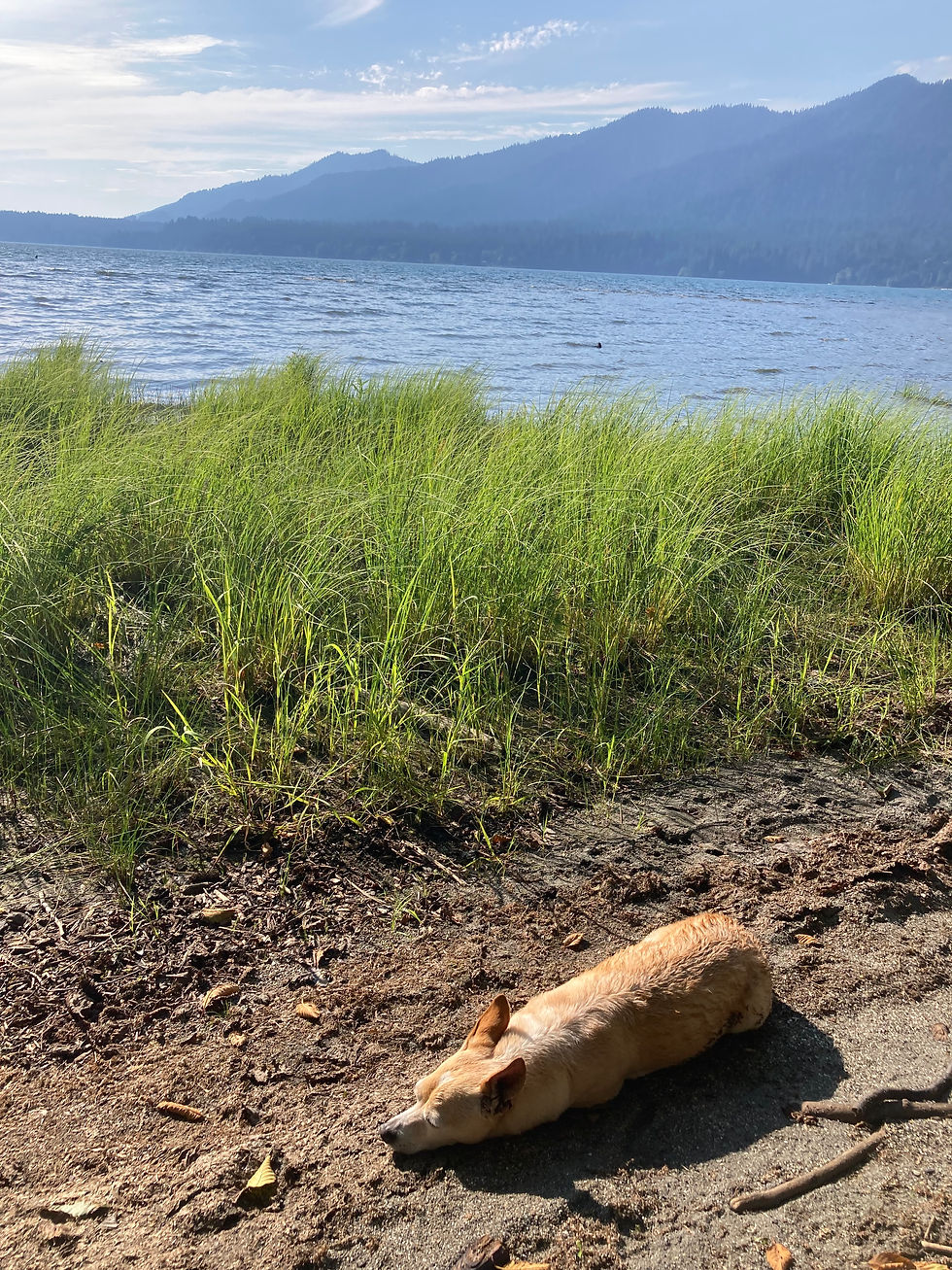ECO Gerontology: An Emerging Field for Harmonious Longevity
- Monica Eastway

- Mar 13, 2022
- 4 min read

Our ability to age optimally is directly associated with our social and physical environments (housing and community characteristics), including our relationship with Nature and the biodiversity of our landscapes. Decades of research have shown that our environments significantly impact longevity, including susceptibility to developing age-related disease (Alzheimer's, Cancer, Osteoporosis), impaired physical mobility, cognitive decline, and sensory loss.
As a gerontologist, I have dedicated my entire career to promoting the health and well-being of the older adults I serve. Interestingly, this dedication has led me to focus on environmental gerontology (ECO Gerontology). We are living in extraordinary times, heading into year three of a global pandemic while our weather systems continue to intensify, literally wiping out entire towns.
We are all aging in the era of climate change, and climate change significantly impacts our ability to age optimally.
In the recent Colorado Marshal fire, 18 nursing homes, hospitals, and medical facilities were evacuated, with nearly 1,000 homes destroyed. Due to unprecedented tornadoes, a Mayfield nursing home was wiped out, displacing 74 residents, and countless care workers and community members lost their homes. These examples are from two events on December 10th and December 30th, 2021, merely twenty days apart.
Eco-anxiety, as defined by The American Psychology Association (APA), is "the chronic fear of environmental cataclysm that comes from observing the seemingly irrevocable impact of climate change and the associated concern for one's future and that of next generations."
Eco-anxiety is becoming more prevalent, affecting our youth and people of all ages.
ECO Gerontology understands the impact of our natural environment and utilizes this knowledge for introducing eco-focused models of care and living. Research has shown that exposure to ecological landscapes positively affects all ages' health and well-being.
The solutions for today's and tomorrow's most pressing problems must be eco-focused for producing multiple benefits. I feel the overwhelm, despair, fear, grief, and anger with what is happening in our world today.
We can do better, and we need to do better, not only for ourselves and the older adults we serve but also to ensure that current and future generations can enjoy what Diego Sanchez Gonzalez calls 'harmonious longevity.'
Enhancing the biodiversity of our landscapes moves us toward building back wiser, in balance with Nature.
In the summer of 2020, Erica Husser, a developmental gerontologist, investigated Nature's influence on rural older women living in Virginia. Husser's qualitative research showed that the older women she interviewed, immersed in Nature daily, found continued joy, relaxation and even strengthened their sense of community during the Covid-19 pandemic.
While many older people struggle with feelings of loss, isolation, confinement, and fear of the unknown, spending time in Nature promotes a sense of connection, acting as a buffer against feelings of loneliness.
Sensory engagement with Nature can positively impact the quality of life, mood, and well-being of older adults (and all ages). Furthermore, a variety of 'microclimates' (shaded areas, raised garden beds, and comfortable sitting areas) in outdoor spaces increases outdoor engagement for older adults, improving hydration and healthy eating.
ECO-Generation Park is a new model of living emphasizing direct interaction, appreciation of, and immersion into the natural world. The housing offers visibility to trees, and the park has wheelchair, walker, dementia-friendly nature trails, and garden spaces.
Community activities occur in the on-site gardens, farm, and animal preserve. Communities with higher proportions of green space (biodiverse habitats) are associated with longevity, lower anxiety, depression, and stress.
ECO Generation Park is not only a place to live; it is a place to learn, live and grow while sharing your legacy, creating multiple benefits.
Our experience of any environment, physical or social, begins with our very own body, mind, and relationship with our natural world; we are Nature. As Nooshin Razini, Director of the Center for Nature and Health at the University of California, says, “Nature has the power to heal because it is where we are from, it is where we belong and it belongs to us as an essential part of our health and our survival.”
As an environmental gerontologist, I guide people of all ages and abilities into the realm of connecting on a deeper level with our planet through ECO-Focused Self-Care. By connecting with our planet more deeply, we can heal our anxiety, grief, anger, hopelessness and begin the process of taking baby eco-conscious steps toward a brighter future.
Breathe Deep and BEE Happy!
With Gratitude,
Monica Eastway, ECO Gerontologist
References
Kilmon, B. (2020, July 02). Rural women offer insight for why nature is important for aging in place. Penn State News. https://news.psu.edu/story/624775/2020/07/02/research/rural-older-women-offer-insight-why-nature-important-when-aging
Sánchez González, D. (2018). Natural landscape and environmental gerontology. Environmental Analysis & Ecology Studies. https://repositorio.uam.es/handle/10486/685786
Santini, S., Piccinini, F., & Gagliardi, C. (2020). Can a green care informal learning program foster active aging in older adults? Results from a qualitative pilot study in central italy. Journal of Applied Gerontology, 39(11), 1240–1249. https://doi.org/10.1177/0733464819883769
Thompson R. (2018). Gardening for health: A regular dose of gardening. Clinical Medicine (London, England), 18(3), 201–205. https://doi.org/10.7861/clinmedicine.18-3-201.
Whitcomb, I. (2021). Therapists are reckoning with eco-anxiety. Scientific American. https://www.scientificamerican.com/article/therapists-are-reckoning-with-eco-anxiety/









Comments